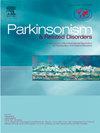The third wheel or the game changer? How AI could team up with neurologists in Parkinson's care
IF 3.1
3区 医学
Q2 CLINICAL NEUROLOGY
引用次数: 0
Abstract
Introduction
Parkinson's disease (PD) is a progressive neurodegenerative disorder marked by diverse motor and non-motor symptoms. AI appears to be the elephant in the neurologist's room, albeit offering transformative potential in early diagnosis, personalized care, and treatment optimization, addressing the complexities of PD management.
Methods
A PubMed review analyzed AI's role in PD care, focusing on multimodal data, clinician-in-the-loop models, and validation strategies to enhance clinical applicability while addressing ethical concerns.
Results
Thirty-nine studies met inclusion criteria. While progress is evident, challenges include limited independent validation, small sample sizes, and inconsistent clinician involvement. Key trends show growing interest in multimodal data and predictive modelling, though gaps in transparency persist.
Conclusions
AI holds promise for improving PD management, yet robust validation, interdisciplinary collaboration, and clearer clinician roles are essential for advancing patient-centered care and fostering trust in AI-driven innovations.
求助全文
约1分钟内获得全文
求助全文
来源期刊

Parkinsonism & related disorders
医学-临床神经学
CiteScore
6.20
自引率
4.90%
发文量
292
审稿时长
39 days
期刊介绍:
Parkinsonism & Related Disorders publishes the results of basic and clinical research contributing to the understanding, diagnosis and treatment of all neurodegenerative syndromes in which Parkinsonism, Essential Tremor or related movement disorders may be a feature. Regular features will include: Review Articles, Point of View articles, Full-length Articles, Short Communications, Case Reports and Letter to the Editor.
 求助内容:
求助内容: 应助结果提醒方式:
应助结果提醒方式:


